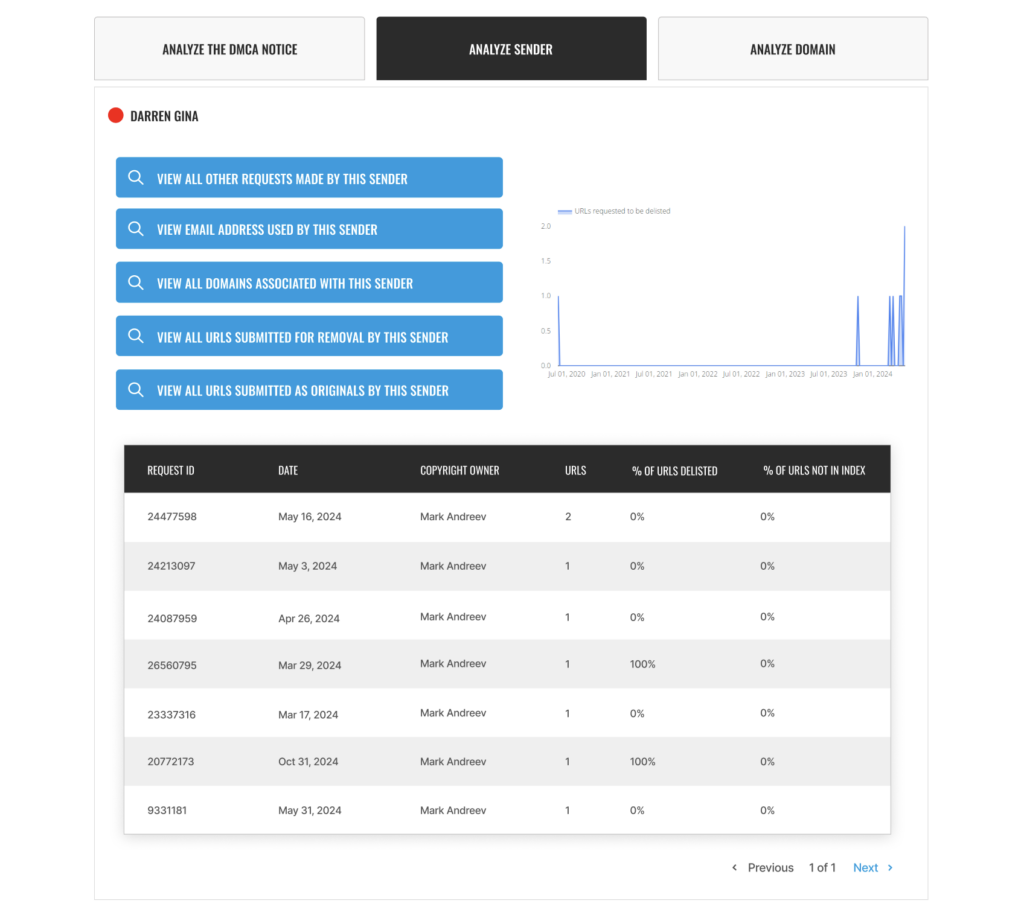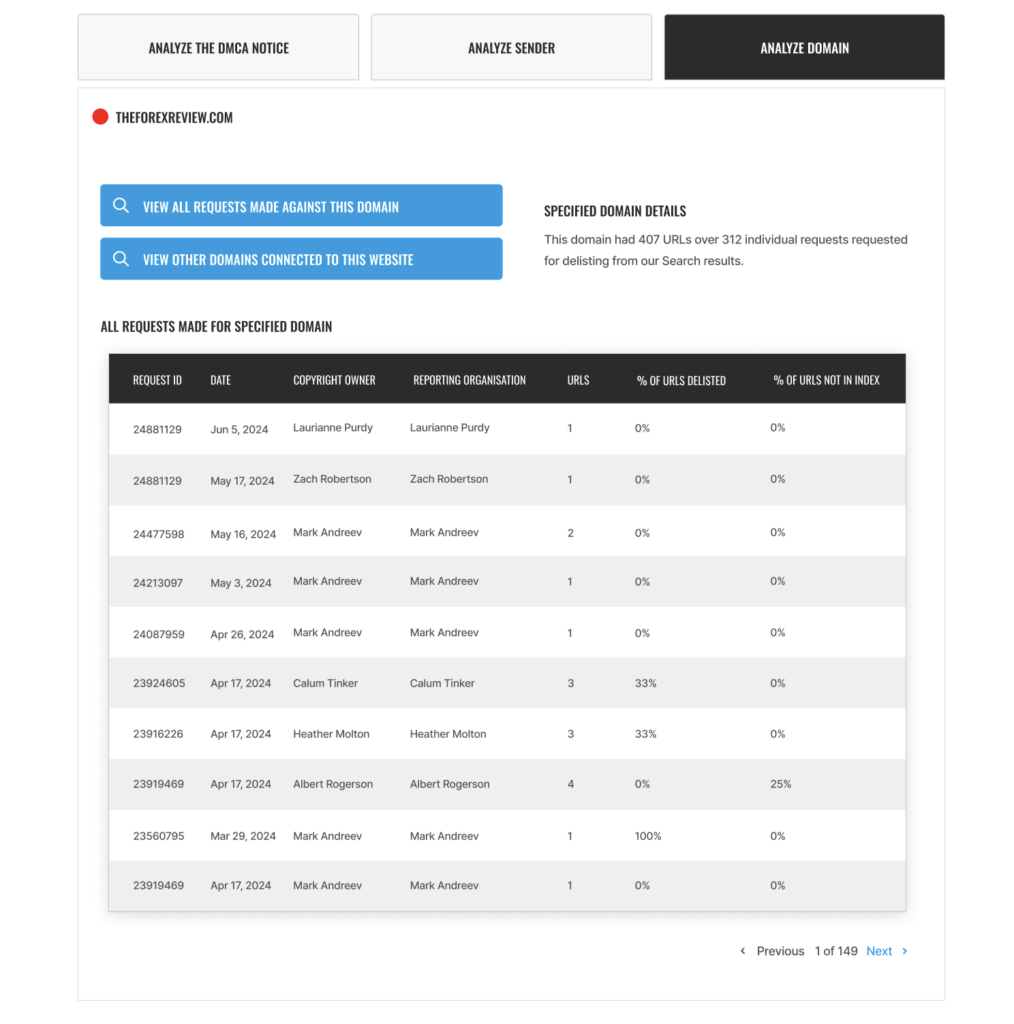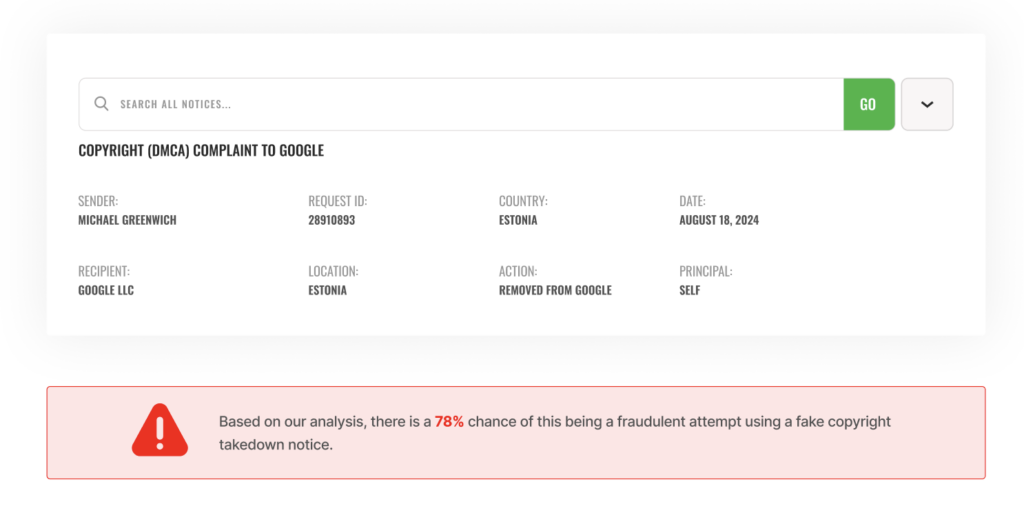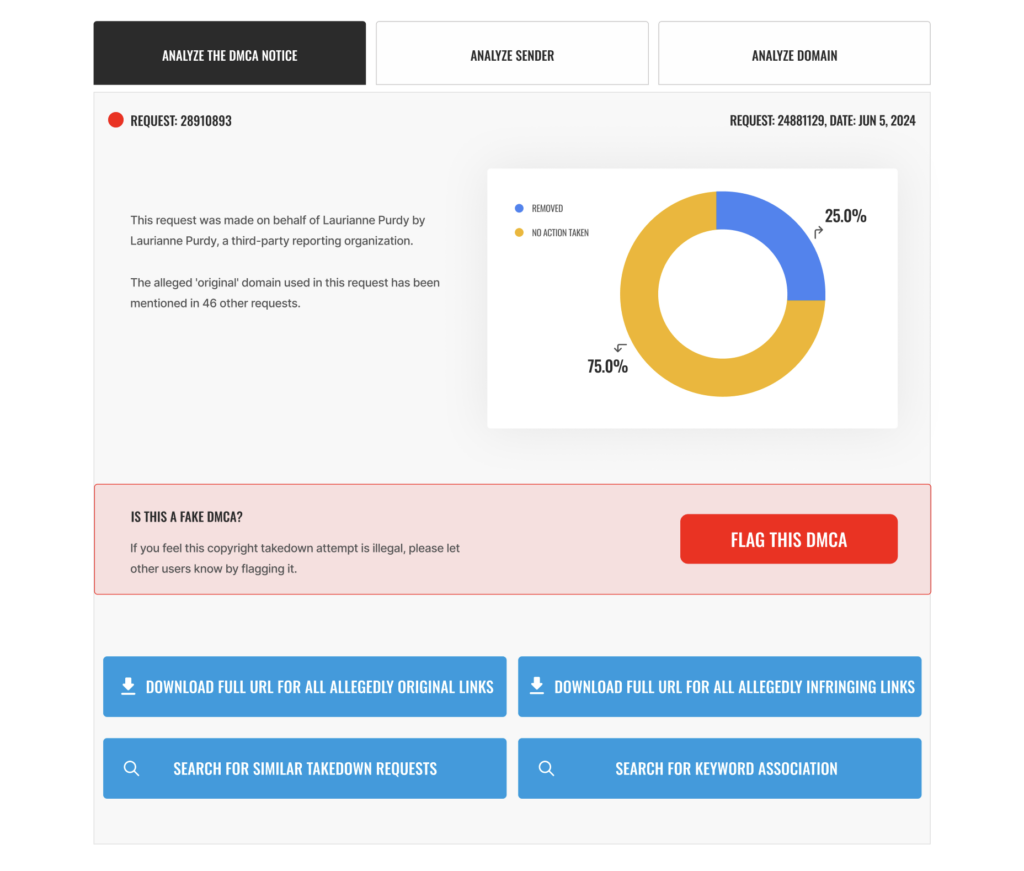What Happened?
FusionLots, an online trading platform that claims to provide investment opportunities in forex and cryptocurrency markets, has recently come under scrutiny for its attempts to hide a dubious history and silence unfavorable coverage. Investigations into FusionLots have raised serious concerns regarding its business practices, regulatory compliance, and overall legitimacy. The firm has been linked to numerous client complaints involving unethical practices, such as account manipulation, unauthorized withdrawals, and unresponsive customer support.
Despite presenting itself as a trustworthy broker, FusionLots has been accused of operating without proper regulatory oversight, leading to allegations of running a scam operation. Several sources have reported that the company employs aggressive marketing tactics to attract unsuspecting investors, who later find themselves unable to access their funds. Kanzlei Herfurtner, a law firm known for investigating fraudulent financial services, has highlighted many such complaints from FusionLots clients, warning the public of the potential risks associated with this broker.

Adding to these concerns, FusionLots has reportedly engaged in efforts to suppress damaging news, including attempting to remove negative reviews and censor client testimonials that expose their questionable practices. These actions raise serious doubts about the broker’s credibility and make it essential for potential investors to exercise caution before engaging with FusionLots.

Analyzing the Fake Copyright Notice(s)
Our team collects and analyses fraudulent copyright takedown requests, legal complaints, and other efforts to remove critical information from the internet. Through our investigative reporting, we examine the prevalence and operation of an organized censorship industry, predominantly funded by criminal entities, oligarchs, and disreputable businesses or individuals. Our findings allow internet users to gain insight into these censorship schemes’ sources, methods, and underlying objectives.
List of Fake Copyright Notices for FusionLots
| Number of Fake DMCA Notice(s) | 1 |
| Lumen Database Notice(s) | https://lumendatabase.org/notices/43650275 |
| Sender(s) | Deborah Smith |
| Date(s) | Aug 07, 2024 |
| Fake Link(s) Used by Scammers | https://www.tumblr.com/myblogisgoodnews/754819252169670656/fusionlots-anw%C3%A4lte-nehmen-broker-unter-die-lupe?source=share |
| Original Link(s) Targeted | https://kanzlei-herfurtner.de/fusionlots/ |
Evidence and Screenshots

How do we investigate fake DMCA notices?
To accomplish this, we utilize the OSINT Tool provided by FakeDMCA.com and the Lumen API for Researchers, courtesy of the Lumen Database.
FakeDMCA.com is the work of an independent team of research students and cybersecurity professionals, developed under Project UnCensor. Their OSINT Tool, designed to uncover and analyze takedown notices, represents a significant step forward in combating these abusive practices. It has become a valuable resource, increasingly relied upon by journalists and law enforcement agencies across the United States.
Lumen, on the other hand, is an independent research initiative dedicated to studying takedown notices and other legal demands related to online content removal. The project, which operates under the Berkman Klein Center for Internet & Society at Harvard University, plays a crucial role in tracking and understanding the broader implications of such requests.
What was FusionLots trying to hide?
FusionLots is an online trading platform that offers trading services in forex, cryptocurrencies, and other financial instruments. The platform claims to provide innovative tools and high returns for investors. However, FusionLots has raised significant concerns regarding its authenticity and transparency, with many users questioning the legitimacy of its operations. It is reported that FusionLots operates without proper regulatory licenses, which increases the risks for investors engaging with this broker.
Adverse News, Bad Reviews, Complaints, Allegations, and Documents
FusionLots has faced a number of negative reports and complaints, which the company appears to be actively trying to suppress. These issues include:
- Lack of Regulation: One of the major concerns surrounding FusionLots is its lack of regulatory oversight. The platform does not seem to hold a valid license from a recognized financial authority, which has raised doubts about the safety of funds and the integrity of the services they offer. Operating without regulatory supervision means there is limited protection for investors, leaving them vulnerable to potential misconduct by the broker.
- Client Complaints of Fund Mismanagement: Multiple clients have reported issues with the management of their funds. This includes allegations of unauthorized transactions, refusal to process withdrawals, and prolonged delays in accessing funds. Some users claim that their accounts were drained without authorization, and efforts to get assistance from FusionLots’ customer support were ignored or blocked.
- Aggressive Sales Tactics and Misleading Promises: FusionLots has been accused of using high-pressure sales tactics to convince potential clients to invest large sums of money. Reports suggest that the platform promises unrealistic returns, which lure in investors who are unaware of the risks involved. Once individuals deposit funds, they may find themselves unable to withdraw their money, leaving them at the mercy of the platform.
- Account Manipulation and Forced Trades: Several investors have alleged that FusionLots manipulates trades and account activity. There are claims that the broker executes trades without the consent of clients or places them in a position to suffer significant losses. These actions indicate a lack of transparency and have caused severe financial damage to those involved.
- Negative Reviews and Allegations of Censorship: Reviews on various platforms reveal a consistent pattern of dissatisfaction among FusionLots users. Kanzlei Herfurtner, a German law firm specializing in financial fraud cases, has noted the growing number of complaints against FusionLots. The platform reportedly attempts to hide these negative reviews, using legal threats or other measures to suppress damaging information. This effort to censor unfavorable content suggests that FusionLots is more concerned with protecting its image than addressing legitimate grievances from investors.
- Associations with Other Scam Brokers: Some evidence suggests that FusionLots may be linked to other platforms that have been flagged as scams. Such associations further undermine the credibility of FusionLots, as they point to a potential network of fraudulent operations designed to exploit unwary investors.
Investors considering FusionLots should be aware of these serious red flags. The broker’s attempts to conceal its shady past and silence critics only add to the concerns surrounding its legitimacy and reliability. Potential clients are advised to conduct thorough research and consider alternative, properly regulated brokers to protect their investments.
Only FusionLots benefits from this crime.

Since the fake copyright takedown notices were designed to remove negative content for FusionLots from Google, we assume FusionLots or someone associated with FusionLots is behind this scam. It is often a fly-by-night Online Reputation agency working on behalf of FusionLots. In this case, FusionLots, at best, will be an “accomplice” or an “accessory” to the crime. The specific laws may vary depending on the jurisdiction. Still, the legal principle generally holds that if you actively participate in planning, encouraging, or facilitating a crime, you can be charged with it, even if you did not personally commit it.
How do we counteract this malpractice?
Once we ascertain the involvement of FusionLots (or actors working on behalf of FusionLots), we will inform FusionLots of our findings via Electronic Mail.
Our preliminary assessment suggests that FusionLots may have engaged a third-party reputation management agency or expert, which, either independently or under direct authorization from FusionLots, initiated efforts to remove adverse online content, including potentially fraudulent DMCA takedown requests. We will extend an opportunity to FusionLots to provide details regarding their communications with the agency or expert, as well as the identification of the individual(s) responsible for executing these false DMCA notices.
Failure to respond in a timely manner will necessitate a reassessment of our initial assumptions. In such an event, we will be compelled to take appropriate legal action to rectify the unlawful conduct and take the following steps –
- Inform Google about the fraud committed against them.
- Inform the victims of the fake DMCA about their websites.
- Inform relevant law enforcement agencies
- File counter-notices on Google to reinstate the ‘removed’ content
- Publish copies of the ‘removed’ content on our network of 50+ websites
By investigating the fake DMCA takedown attempts, we hope to shed light on the reputation management industry, revealing how FusionLots and companies like it may use spurious copyright claims and fake legal notices to remove and obscure articles linking them to allegations of fraud, tax avoidance, corruption, and drug trafficking…
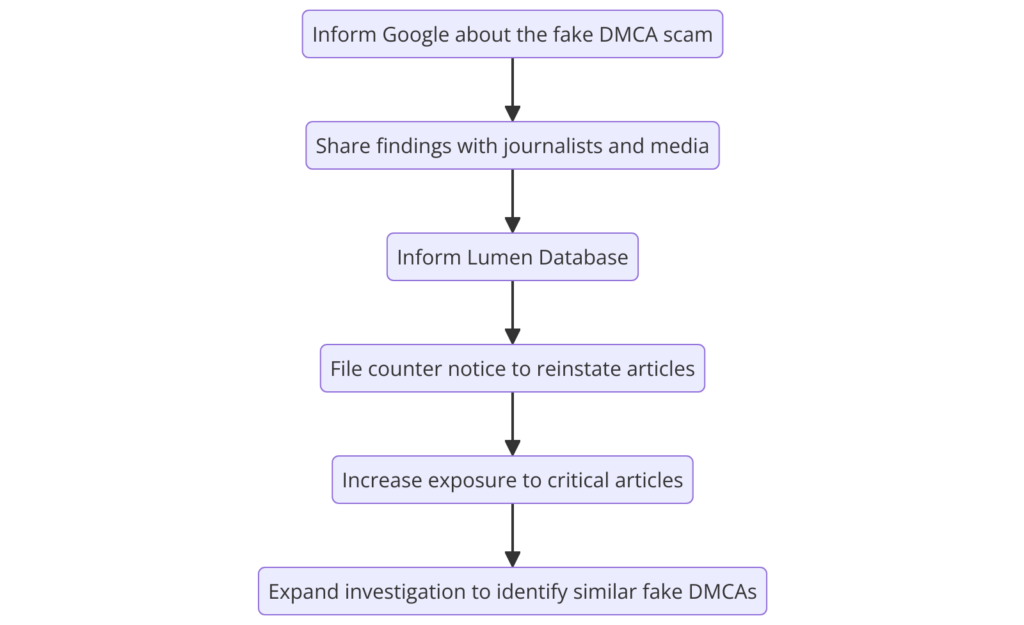
Since FusionLots made such efforts to hide something online, it seems fit to ensure that this article and our original review of FusionLots, including but not limited to user contributions, remain a permanent record for anyone interested in FusionLots.
A case perfect for the Streisand effect…
Potential Consequences for FusionLots
Under Florida Statute 831.01, the crime of Forgery is committed when a person falsifies, alters, counterfeits, or forges a document that carries “legal efficacy” with the intent to injure or defraud another person or entity.
Forging a document is considered a white-collar crime. It involves altering, changing, or modifying a document to deceive another person. It can also include passing along copies of documents that are known to be false. In many states in the US, falsifying a document is a crime punishable as a felony.

Additionally, under most laws, “fraud on the court” is where “a party has sentiently set in motion some unconscionable scheme calculated to interfere with the judicial system’s ability impartially to adjudicate a matter by improperly influencing the trier of fact or unfairly hampering the presentation of the opposing party’s claim or defense.” Cox v. Burke, 706 So. 2d 43, 46 (Fla. 5th DCA 1998) (quoting Aoude v. Mobil Oil Corp., 892 F.2d 1115, 1118 (1st Cir. 1989)).
Is FusionLots Committing a Cyber Crime?
Yes, it seems so. FusionLots used multiple approaches to remove unwanted material from review sites and Google’s search results. Thanks to protections allowing freedom of speech in the United States, there are very few legal ways to do this. FusionLots could not eliminate negative reviews or search results that linked to them without a valid claim of defamation, copyright infringement, or some other clear breach of the law.
Faced with these limitations, some companies like FusionLots have gone to extreme lengths to fraudulently claim copyright ownership over a negative review in the hopes of taking it down.
Fake DMCA notices have targeted articles highlighting the criminal activity of prominent people to hide their illegal behavior. These people, which include US, Russian, and Khazakstani politicians as well as members from elite circles including the mafia and those with massive financial power, are all connected – and alleged corruption ranging from child abuse to sexual harassment is exposed when exploring evidence found at these URLs. It appears there’s a disturbing level of influence being exerted here that needs further investigation before justice can be served. FusionLots is certainly keeping interesting company here….

The DMCA takedown process requires that copyright owners submit a takedown notice to an ISP identifying the allegedly infringing content and declaring, under penalty of perjury, that they have a good faith belief that the content is infringing. The ISP must then promptly remove or disable access to the content. The alleged infringer can then submit a counter-notice, and if the copyright owner does not take legal action within 10 to 14 days, the ISP can restore the content.
Since these platforms are predominantly based in the U.S., the complaints are typically made under the Digital Millennium Copyright Act (DMCA), which requires online service providers and platforms to react immediately to reports or violations. Big Tech companies rarely have systems in place to assess the merit of each report. Instead, all bad actors need to do is clone a story, backdate it, and then demand the real thing be taken down.
Reputation Agency’s Modus Operandi
The fake DMCA notices we found always use the “back-dated article” technique. With this technique, the wrongful notice sender (or copier) creates a copy of a “true original” article and back-dates it, creating a “fake original” article (a copy of the true original) that, at first glance, appears to have been published before the true original.





